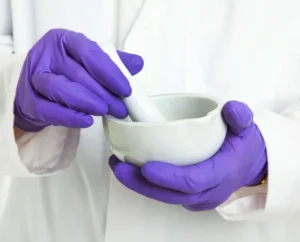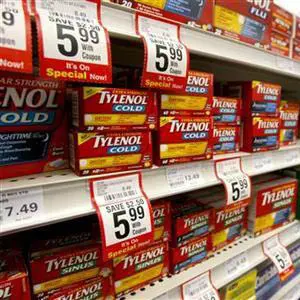Regulation Advised for Compounding of Drugs~3 min read
 Some local pharmacies offer compounding services to meet special needs of patients. However, some pharmacies are acting as miniature drug companies replicating products already available on the market to compete with large pharmaceutical companies. This has created an element of risk that is talked about in this Editorial from the New York Times which calls on Congress to enact legislation to give increased regulatory power to the F.D.A. This health risk is responsible for repeated incidents such as the recent outbreak of meningitis and thousands who were exposure to tainted steroids. Read below:
Some local pharmacies offer compounding services to meet special needs of patients. However, some pharmacies are acting as miniature drug companies replicating products already available on the market to compete with large pharmaceutical companies. This has created an element of risk that is talked about in this Editorial from the New York Times which calls on Congress to enact legislation to give increased regulatory power to the F.D.A. This health risk is responsible for repeated incidents such as the recent outbreak of meningitis and thousands who were exposure to tainted steroids. Read below:
Editorial
Out-of-Control Compounding of Drugs
Published: October 9, 2012
The meningitis outbreak that has sickened at least 119 people and killed 11 of them has laid bare a disturbing lack of regulatory oversight of pharmacies that mix drug compounds and ship them around the country. Unless Congress passes legislation to strengthen the hand of the Food and Drug Administration, the public will continue to be at risk from contaminated products.
The outbreak has been linked to a steroid made by the New England Compounding Center in Framingham, Mass., that was shipped to 23 states. The steroid was almost certainly contaminated by a fungus, although final laboratory results are not yet in. Some 13,000 patients may have had the tainted steroid injected near their spines to ease back or neck pain. The center has shut down, surrendered its license and recalled all of its products, not just the steroids, while state and federal investigations try to pin down exactly what went wrong.
How could this happen? As Denise Grady, Andrew Pollack and Sabrina Tavernise explained in The Times, these pharmacies fall into a legal no man’s land between the Food and Drug Administration and 50 state pharmacy boards, most of which have little expertise and limited resources to ensure the safety of these products.
Years ago, compounding pharmacies were small-scale operations that mixed ingredients to meet the special needs of patients who couldn’t take the standard drugs, perhaps because they were allergic to a particular ingredient or couldn’t swallow a pill and needed a liquid form instead. Such pharmacies still exist, often inside a hospital, where they custom-make mixtures in accord with prescriptions written by the patients’ doctors.
Over the past decade or more, however, some pharmacies have morphed into miniature drug companies that compete with big pharmaceutical firms and produce compounds that essentially mirror drugs already on the market. Doctors and hospitals have turned to these pharmacies because their prices are often much lower than those charged by major manufacturers or because the standard drugs are in short supply.
Therein lies an element of risk. Compounded drugs have not gone through the same rigorous tests for safety and effectiveness required of standard drugs and are not made in plants inspected by the F.D.A. to ensure good manufacturing practices. There have been several incidents in recent years in which compounded drugs have caused injury. Some critics complain that the F.D.A. and state regulators should have intervened in this case sooner and more forcefully, which may well be true. But conflicting court decisions have left unclear what powers the F.D.A. has to regulate these pharmacies.
Congress can and should clarify matters with legislation. The legislation ought to grant the F.D.A. any powers it thinks it needs to inspect compounding pharmacies, monitor their nationwide sales and judge the safety or effectiveness of their products. It should also empower the F.D.A. to block pharmacies from making drugs (such as injectable steroids) that require a higher degree of sterility than many of them can meet. The goal is to ensure that there are no further calamities in this lightly regulated market.







